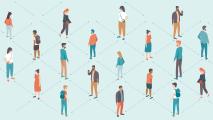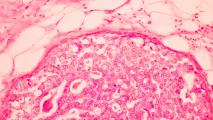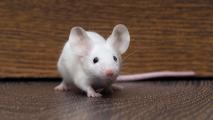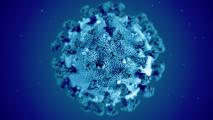
Biotech
Human history has been all but defined by death and disease, plague and pandemic. Advancements in 20th century medicine changed all of that. Now advancements in 21st century medicine promise to go even further. Could we bring about an end to disease? Reverse aging? Give hearing to the deaf and sight to the blind? The answer may be yes. And soon.
More
How to keep hospitals safe with a pandemic still raging
This coronavirus screening app is helping 25,000 hospital employees get to work faster and safer.
How will businesses keep employees safe during COVID-19?
Lockdowns are ending but the coronavirus pandemic isn’t over, so what can businesses do to keep employees safe during COVID-19?
Embryo model unlocks “black box” of human development
This ethical model of a human embryo provides a look at a never-before-studied stage of embryonic development: gastrulation.
MDMA has long-lasting benefits as a PTSD treatment
The benefits of MDMA therapy as a PTSD treatment appear to last for at least a year, according to a newly published paper.
We’re one step closer to a bionic, prosthetic eye
A prosthetic eye may soon be possible, thanks to new research that demonstrates how to stimulate the brain to “see.”
Can an app help you have better sex?
An app created by a sex therapist is helping couples learn how to have better sex by exploring their own desires and discovering their partner’s.
How organoids are helping scientists fight the coronavirus
Researchers are turning to organoids — lab-grown clumps of cells that mimic human organs — in an effort to better understand the coronavirus.
Psilocybin may impact your ego center
You’ve heard about “ego death” on magic mushrooms. New research suggests psilocybin curbs part of the brain that may tie in to ego.
New 3D bioprinting method uses light to grow ears in mice
A new 3D bioprinting technique uses near-infrared light to trigger a bioink to form shapes, even when placed under the skin of mice.
Fully see-through face mask ready for mass production
The HelloMask is a fully see-through face mask made of a breathable material that offers the same protection as a standard surgical mask.
Are handshakes gone for good?
The spread of COVID-19 has turned an age-old gesture into a faux pas. As more people are wary of spreading germs, handshakes are becoming less of a cultural norm, but are they gone for good?
“Social bubbles” could help end coronavirus lockdowns
Computer simulations show that “social bubbles” could help us end coronavirus lockdowns without causing a dramatic increase in cases.
Genetic “off switch” may lead to new breast cancer treatment
A much-needed triple negative breast cancer treatment could center on the suppression of a single gene identified in a new Tulane University study.
Gene editing corrects deafness-causing mutation in mice
Using a promising new technique for gene editing — base editing — researchers corrected a deafness-causing genetic mutation in mice.
Scientists reveal first 3d heart model that shows heart’s neurons
Researchers built a virtual 3D heart model in unparalleled detail, mapping the neurons for the first time.
Is it safe to go to the dentist now?
Is it safe to go to the dentist now that offices are reopening across the U.S.? Here’s what experts say you should consider before making an appointment.
“That is insane”: The strange, deadly coronavirus immune response
Research suggests the coronavirus immune response is different than with other viruses. It may help inform treatments and our understanding of COVID-19.
A soaring employment rate and more COVID-19 updates
In our weekly news roundup, we take you inside the fight against COVID-19 to explore the solutions on the frontlines of an unprecedented global response.
Where did the coronavirus come from?
After analyzing dozens of coronaviruses, U.S. scientists believe COVID-19’s origin story involves not one, but two animal species.
Singapore to give all residents wearables for contact tracing
Singapore is testing the ability of wearables for contact tracing to prevent an increase in coronavirus infections as it lifts lockdown restrictions.
Get inspired with the most innovative stories shaping the world around us.

































